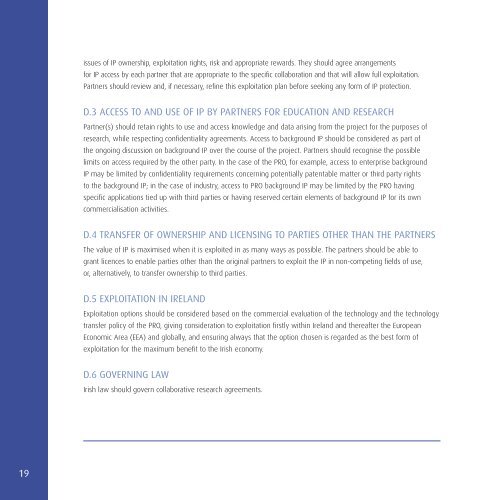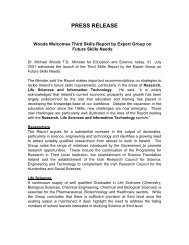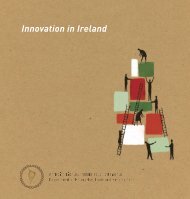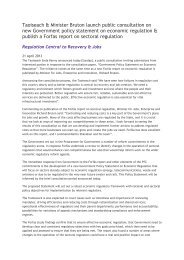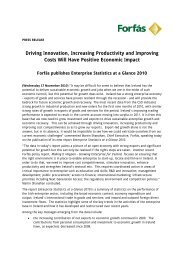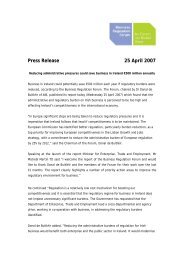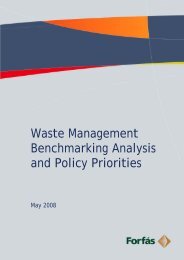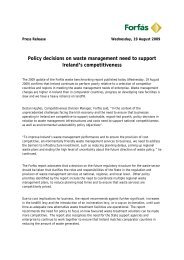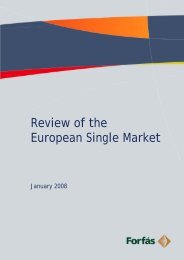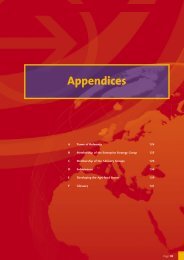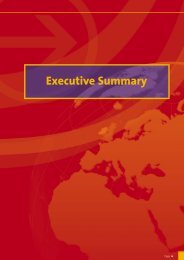National Code of Practice for Managing Intellectual Property ... - Forfás
National Code of Practice for Managing Intellectual Property ... - Forfás
National Code of Practice for Managing Intellectual Property ... - Forfás
You also want an ePaper? Increase the reach of your titles
YUMPU automatically turns print PDFs into web optimized ePapers that Google loves.
19<br />
issues <strong>of</strong> IP ownership, exploitation rights, risk and appropriate rewards. They should agree arrangements<br />
<strong>for</strong> IP access by each partner that are appropriate to the specific collaboration and that will allow full exploitation.<br />
Partners should review and, if necessary, refine this exploitation plan be<strong>for</strong>e seeking any <strong>for</strong>m <strong>of</strong> IP protection.<br />
D.3 ACCESS TO AND USE OF IP BY PARTNERS FOR EDUCATION AND RESEARCH<br />
Partner(s) should retain rights to use and access knowledge and data arising from the project <strong>for</strong> the purposes <strong>of</strong><br />
research, while respecting confidentiality agreements. Access to background IP should be considered as part <strong>of</strong><br />
the ongoing discussion on background IP over the course <strong>of</strong> the project. Partners should recognise the possible<br />
limits on access required by the other party. In the case <strong>of</strong> the PRO, <strong>for</strong> example, access to enterprise background<br />
IP may be limited by confidentiality requirements concerning potentially patentable matter or third party rights<br />
to the background IP; in the case <strong>of</strong> industry, access to PRO background IP may be limited by the PRO having<br />
specific applications tied up with third parties or having reserved certain elements <strong>of</strong> background IP <strong>for</strong> its own<br />
commercialisation activities.<br />
D.4 TRANSFER OF OWNERSHIP AND LICENSING TO PARTIES OTHER THAN THE PARTNERS<br />
The value <strong>of</strong> IP is maximised when it is exploited in as many ways as possible. The partners should be able to<br />
grant licences to enable parties other than the original partners to exploit the IP in non-competing fields <strong>of</strong> use,<br />
or, alternatively, to transfer ownership to third parties.<br />
D.5 EXPLOITATION IN IRELAND<br />
Exploitation options should be considered based on the commercial evaluation <strong>of</strong> the technology and the technology<br />
transfer policy <strong>of</strong> the PRO, giving consideration to exploitation firstly within Ireland and thereafter the European<br />
Economic Area (EEA) and globally, and ensuring always that the option chosen is regarded as the best <strong>for</strong>m <strong>of</strong><br />
exploitation <strong>for</strong> the maximum benefit to the Irish economy.<br />
D.6 GOVERNING LAW<br />
Irish law should govern collaborative research agreements.


